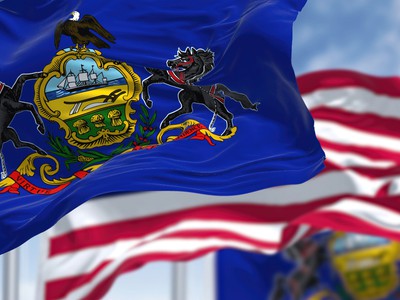The Pennsylvania Gaming Control Board (PGCB) said increased awareness of its self-exclusion program for online gambling has led to the list doubling in one year and increasing tenfold over two years.
In an exclusive statement to PA Gaming Review, PGCB spokesperson Doug Harbach attributed the increases to “more publicity on the availability of the online self-exclusion list and the ease of signing up using online tools.”
But Harbach also said the increases were partly driven by “the additional internet sites offering iGaming and sports wagering.
“Remember this is for all internet gaming, so it includes the casino games but also sports wagering — in which 90% of the wagering is conducted online, versus just 10% at retail facilities,” Harbach said Friday.
“As of June 30, 2020, there were a total of 19 online sites. As of June 30, 2022, that number had increased to 34 sites. So, the [increased] availability, which leads to more players, certainly explains that increase.”
Nearly 2,300 Individuals on the iGaming Self-Exclusion List
According to the PGCB’s annual report for the 2021-2022 fiscal year (FY), as of June 30, 2022, there have been 21,756 individuals who have volunteered to be on the agency’s self-exclusion list since its inception in 2006. Of those, 2,295 people self-excluded from iGaming.
By comparison, self-exclusion from iGaming totaled 231 people in FY 2019-2020 — the first year the agency separated online gambling from retail casino and sports wagering, video gaming terminals, and fantasy contests. Then iGaming total grew to 1,041 individuals in FY 2020-2021.
Online gambling self-exclusions grew 350% between FY 2019-2020 and what became the opening months of the pandemic, FY 2020-2021. Between the latter and FY 2021-2022, the total more than doubled. The state’s fiscal year begins on July 1 and ends on June 30. The most recent figures also show that iGaming self-exclusions represent 10.5% of the total number of self-exclusions.
The PGCB has reported the number of participants in its self-exclusion program every year since its annual report for 2007.
Pennsylvania Among States Most Committed to Responsible Gaming
According to the American Gaming Association’s (AGA) Responsible Gaming Statutes and Regulations Guide, 34 states and the District of Columbia had responsible gaming programs in place as of August 2022.
The AGA report shows that Pennsylvania is one of only 13 jurisdictions (including DC) to:
- Require a responsible gaming plan
- Has a self-exclusion plan in place
- Set requirements for on-property signage at gaming facilities and/or disclosures for responsible gaming
- Enact advertising restrictions
- Establish wager/time limits
Pennsylvania also has restrictions on the extension of house credit and restrictions on the ability of casinos or online operators to accept credit card deposits. It has also codified a commitment to support the treatment and education of people with gambling problems. It requires that gaming facilities train their employees “on how to identify players demonstrating problematic or risky behavior on the gaming floor.”
The state has not implemented alcoholic beverage restrictions on the gaming floor, but only 18 jurisdictions have — and, of those, three jurisdictions (Florida, Maryland, and New Mexico) have banned complimentary drinks.
According to the AGA, Pennsylvania has three options for individuals who volunteer to be placed on the self-exclusion list — a one-year ban, a five-year ban, or a lifetime ban.
Although the PGCB did not provide a breakdown in the most recent report of how long the participants chose to self-exclude, in 2007, the agency reported that 44% of participants chose the one-year ban while 23% took the five-year option, and 33% requested a lifetime ban.
Head to our sister site CasinoShield to learn how to identify signs of problem gambling, how to gamble responsibly, & access a state-by-state guide to tools & resources that can help if you’re struggling.









